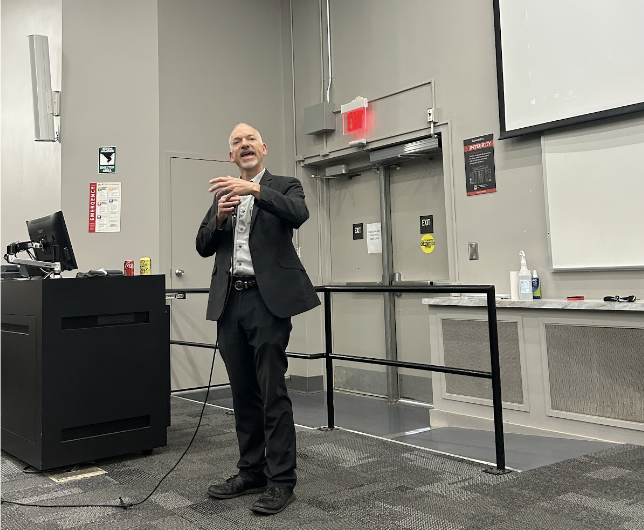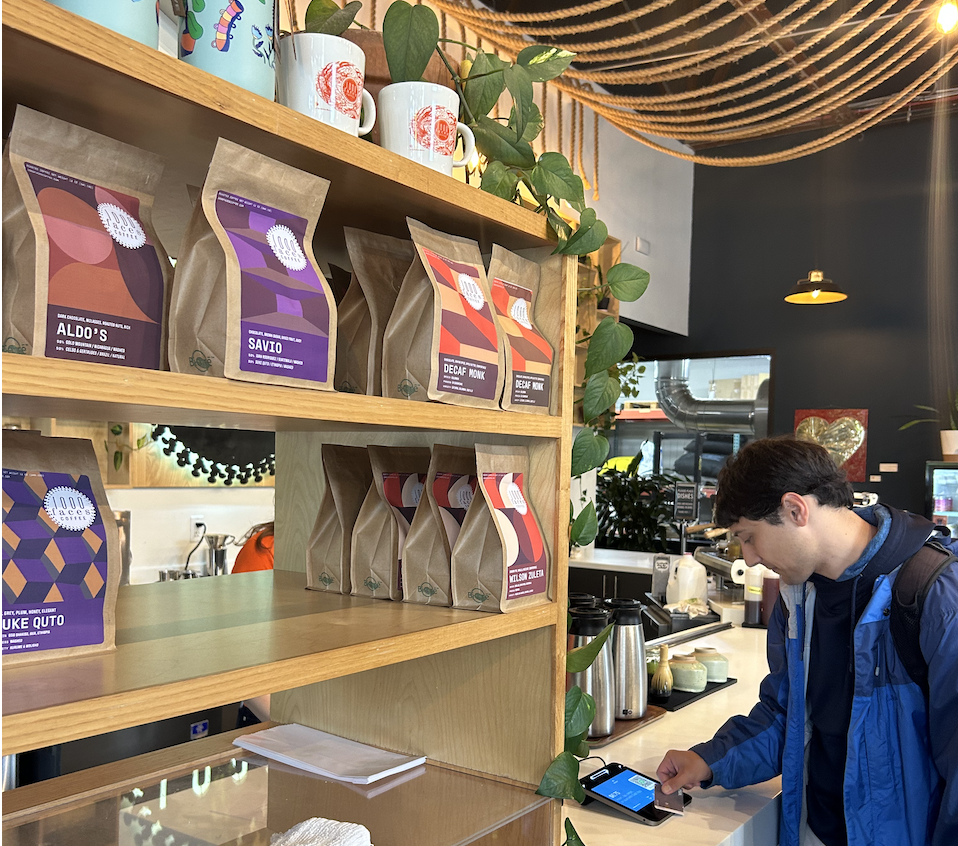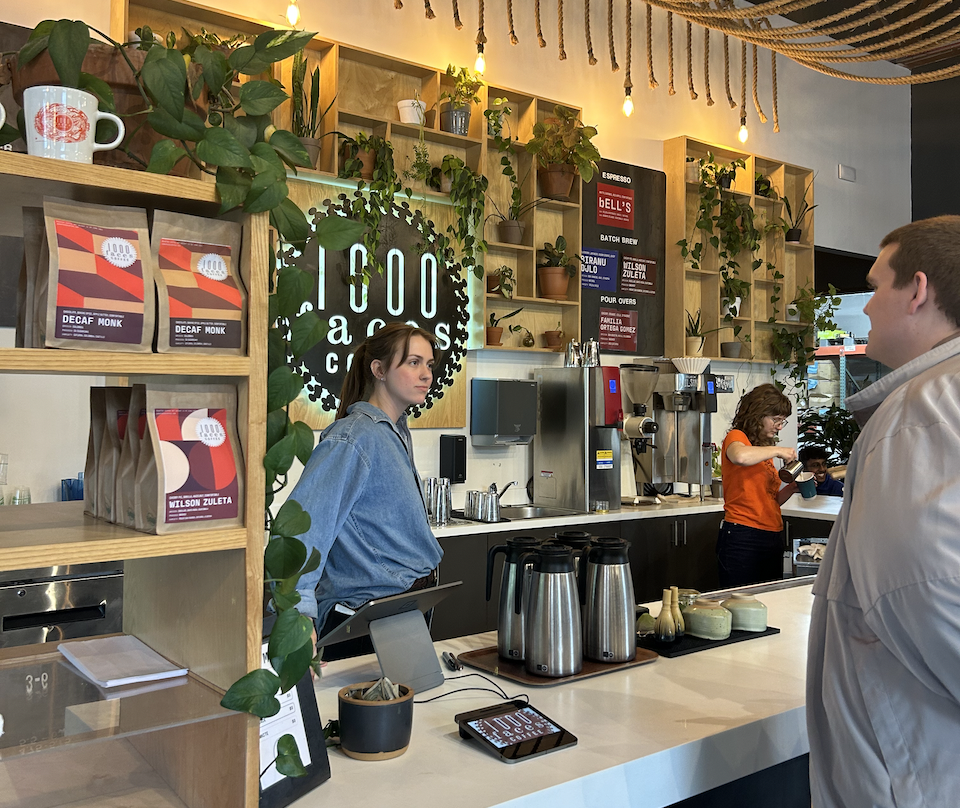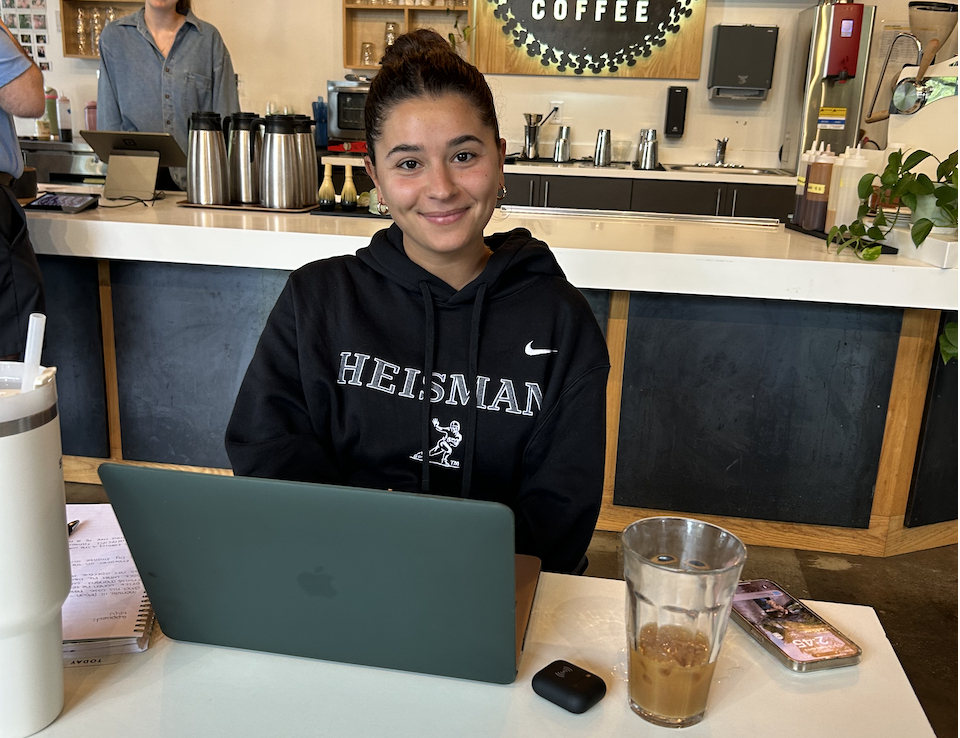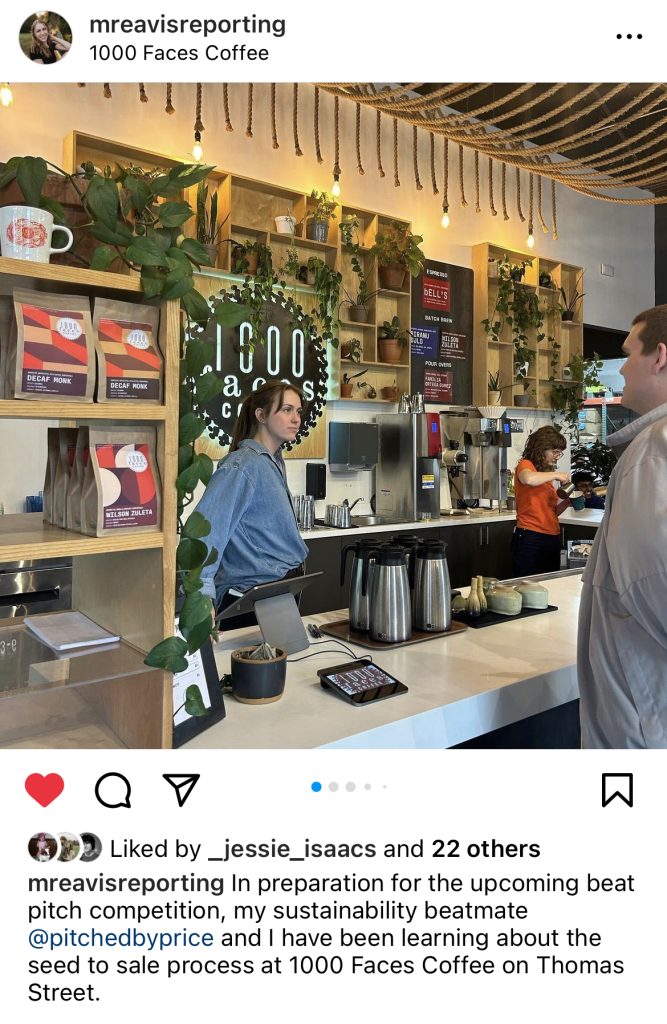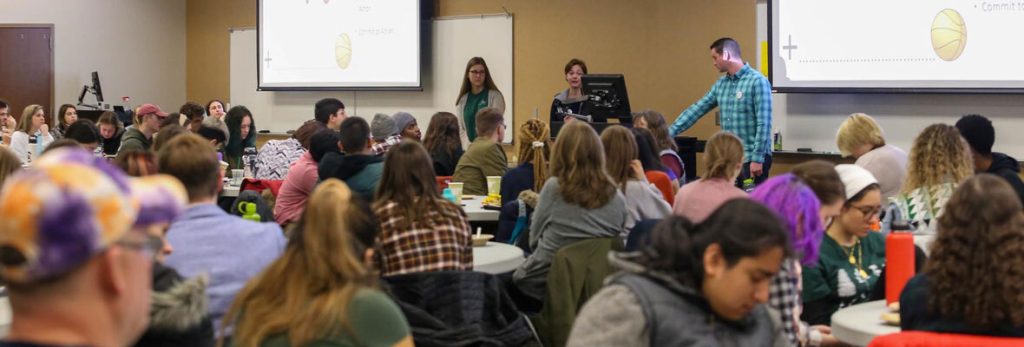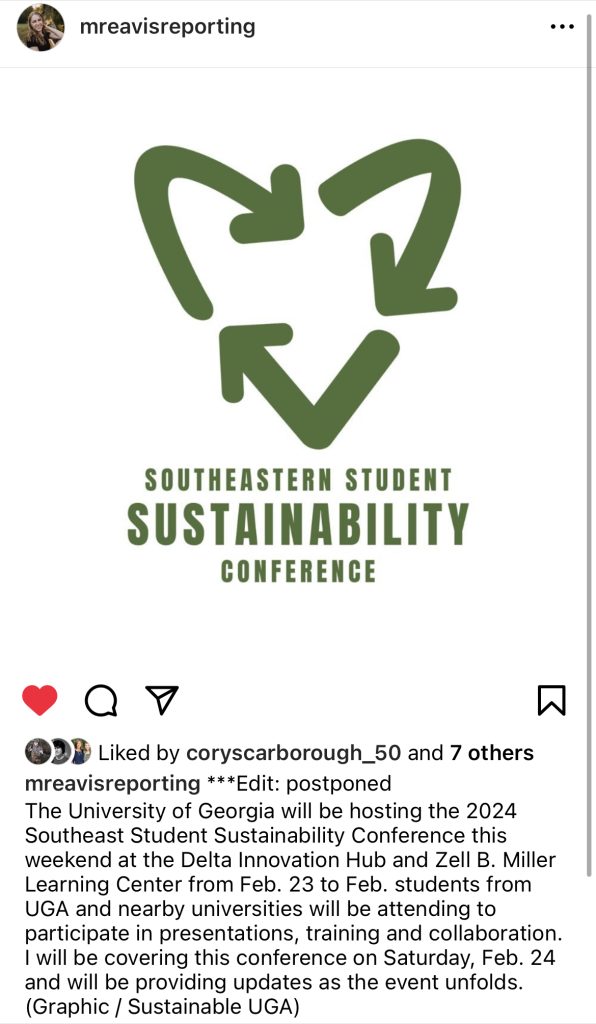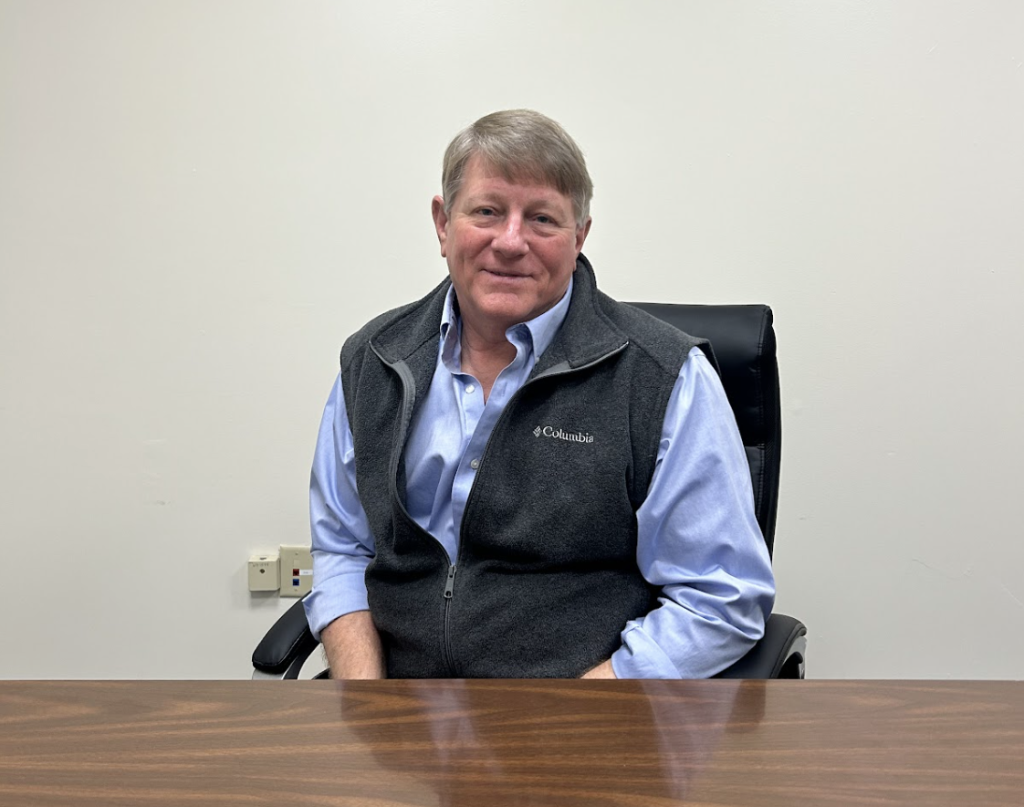View this story on the Grady Newsource website
Rooted in community: How Holte Gardens blossomed into a thriving business
By Makenna Reavis

Seyoung Holte never planned on turning her backyard into a prosperous plant business. But, when she and her husband, Daniel, found themselves outnumbered by foliage, they figured it was time to share.
On a bright spring afternoon, Seyoung Holte led me through the winding paths of her woodland garden in Oconee County. We passed beds of hostas, camellias, butterfly bushes, edgeworthias and hydrangeas. Down the hill, in the propagation station, Rows of nursery pots awaited their next home, filled with several varieties of ferns and hostas ready for upcoming markets.
She stopped in a patch of potted Japanese maples to tell me the story of a special one: a descendant, she said, of Jackie Kennedy’s favorite Japanese maple at the White House.
This is Holte Gardens, a garden business based out of the Holte home, nestled in a small, quiet subdivision. Since 2015, the couple has cultivated more than 2,000 plants on their property, including both permanent plantings and potted specimens for sale at local markets and festivals.
Although most of their plants aren’t presidential progeny like their white house maple, they have gone through generations of breeding to create the most successful plant variations.

Starting from scratch
Originally from Korea and Chicago, the Holtes planted their roots–along with their first hydrangeas–after settling into the perfect home in Georgia.
“It was our first house to actually build from scratch, so we’re like, we’re gonna touch every single square foot of this yard,” Seyoung said.
When their passion for plants started to overwhelm their limited space, the couple decided to expand. In 2022, they brought their first offerings to the Oconee Farmers Market.
“I enjoyed it more than I thought I would. I just love to spend time with the people stopping by and talk about plants. There’s no one who’s mean when they talk about plants, you know, so it’s just very pleasant,” Seyoung said.
Their enthusiasm has only grown. Daniel started a plant lab in their basement, experimenting with cross-breeding and year-round growing. Seyoung took her eye for design into other people’s yards, helping clients start their own ornamental gardens from scratch.
Today, Holte gardens is a familiar name at markets around the Athens area, including the Oconee Farmers Market, Monroe Farmers Market and Marigold Farmers Market. They also attend festivals and sell their plants on Facebook Marketplace.
Branching into business
These small, solo-run business ventures, often called microbusinesses, are a hallmark of Athens. Marissa Chastain, the vice president of operations for the Athens Area Chamber of Commerce, noted that Athens is a hub for unique and funky small businesses, with about 90% of the chamber’s members having one to five employees.
The many markets around Athens provide both sales and exposure to these small businesses by welcoming them to an already established marketplace of dedicated customers.

Sunrise Nursery, a Winterville-based plant nursery, began selling at the Athens Farmers market in early March and has since seen a boost in visitors to its nursery. Willow Samsel, manager at Sunrise, said the increased visibility has been tremendous.
“A lot of people in Athens don’t know we’re here because we’re in Winterville, outside of Athens, so we’ve got a lot more PR,” she said. “We’ve been able to give out different informational handouts to people, and we have people come from the market to buy stuff the same day.”
A community of support
Beyond just the tangible resources, Athens’ tight-knit sense of community bonds small businesses and their consumers. In a time where 50% of businesses fail within their first five years, Athens shows up for its small businesses.
“Athens is a really philanthropic community,” Chastain said. “It’s encouraging to me to see how our businesses support our nonprofit community and support each other, and how our community shows up to support our businesses too.”
As the Holtes look ahead, they’re planning an expansion: a five-acre property with space for a nursery, a garden center, and even a guest house. Still, no matter where they land, Athens will remain their home.
“We really love sharing the joy of gardening,” Seyoung said. “I think that’s part of the joy.”
